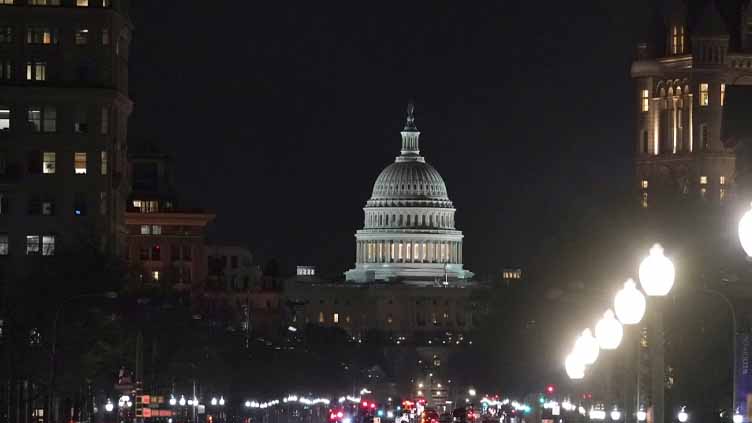Local Washington officials brace for four years of playing defense against Trump

World
“I can’t predict what they’re going to try to do to us,” she said
WASHINGTON (AP) — Donald Trump’s first stint in the White House proved to be a chaotic ride for the District of Columbia.
Now with Trump set to return to power — backed by a Republican-controlled Congress and the momentum of a sweeping electoral win — local officials in the nation’s capital are trying to sound conciliatory while preparing for the worst.
“We have been discussing and planning for many months in the case that the District has to defend itself and its values,” said Mayor Muriel Bowser. Her office had “communicated with (Trump’s) team and indicated we would like to speak,” she said on Nov. 12, but hadn’t heard back.
Bowser downplayed the myriad differences between the two sides and emphasized a search for common ground. But those commonalities may be hard to come by, given open mutual animosity that has defined Trump’s relationship with the district.
During Trump’s turbulent first four years in office, he and the local government publicly sparred multiple times — in tones ranging from playful to deeply personal. When Trump floated the idea of a massive July 4 military parade complete with tanks rolling through the streets, the D.C. Council publicly mocked him.
When mass protests broke out in the summer of 2020 over the death of George Floyd and wider police brutality and racial issues, Trump accused Bowser of losing control of her city. he eventually declared his own multi-agency lockdown that included low-flying helicopters buzzing protesters. Bowser responded by having “Black Lives Matter” painted on the street in giant letters one block from the White House.
During the last four years, with Trump as an aggrieved private citizen, his feelings toward Washington have remained intense. On the campaign trail, he repeatedly vowed to “take over” the city and usurp the authority of the local government. In August 2023, when he briefly came to town to plead not guilty on charges of trying to overturn his 2020 electoral loss to President Joe Biden, Trump blasted the capital city on social media, calling it a “filthy and crime ridden embarrassment to our nation.”
Now Bowser and the D.C. Council are bracing for what could be several years of playing defense against opponents who wield significant power over Washington’s affairs.
“We just have to do our best and hold on for another few years. We have to figure out how to make it work,” said Councilmember Christina Henderson. “Unlike millions of voters around the country, I actually believe the man when he speaks. He said what he’s going to do.”
Henderson, a former staffer for Senate Majority Leader Chuck Schumer, D-N.Y., points out that Trump has already experienced what she called “the trifecta” — Republican control of the White House and both houses of Congress — during his first two years in office and the district managed to get through it. She also notes that Republican control of the House of Representatives will be up for grabs again in just two more years.
“I can’t predict what they’re going to try to do to us,” she said. “I can just prepare to respond.”
Other congressional Republicans have sought to make more fundamental changes to the way Washington operates. Rep. Andrew Clyde of Georgia has proposed completely repealing the Home Rule Act, while Rep. Andy Ogles of Tennessee has talked publicly of abolishing the office of D.C. mayor. Neither Ogles’ nor Clyde’s office responded to Associated Press requests for comment on their future intentions.
Despite the looming battles, Bowser’s search for common ground with Trump and congressional Republicans may not be completely hopeless. Bowser actually vetoed the criminal code rewrite but was overridden by the D.C. Council; her opposition was frequently cited by congressional Republicans as proof of how far the council had strayed from mainstream Democratic policy.
And Bowser, Trump and Republicans in Congress have all agreed for years on one particular issue: the need to end post-pandemic teleworking and bring all federal employees back to their offices five days a week. She said she looked forward to discussing that with Trump.


